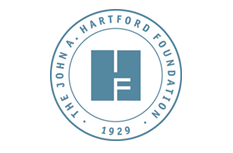*Free registration is required to use the toolkits provided within HIPxChange. This information is required by our funders and is used to determine the impact of the materials posted on the website.
Preventing Opioid Prescription Theft and Ensuring Secure Transfer of PHI during Transitions from Hospital to Nursing Homes
The goal of this toolkit is to help hospital systems that serve vulnerable populations to improve care coordination and post-discharge outcomes when patients transition from the hospital and into a nursing home setting.
Despite the well-documented negative outcomes associated with poor care transitions, including preventable hospitalizations, medication errors, and unnecessary resource utilization, patients and their families are often unprepared for the realities of the post-hospital care setting.
The PReventing Opioid prescription Theft and Ensuring seCure Transfer of Personal Health Information (PROTECT PHI) intervention helps to improve patient safety and post-discharge outcomes by helping to ensure secure delivery of opioid prescriptions and protect personal health information (PHI) when patients transition from the hospital to a nursing home setting. This toolkit provides detailed information on the PROTECT PHI protocol.
Toolkit Aims
Collaborating with the hospital safety and discharge teams, we implemented an innovative, hospital-wide, low-cost method of securing PHI and improving successful delivery of opioid prescriptions for patients transitioning from the hospital to nursing home settings.
The aim of this toolkit is to provide an overview of the PROTECT PHI goals, components, and protocol steps.
Successful implementation of PROTECT PHI requires that clinicians and researchers also create an implementation plan that will allow for integration within a given work environment.
Highlights of the PROTECT PHI Toolkit
This toolkit is divided into five sections:
- An overview of barriers to providing high quality transitional care
- The PROTECT PHI rationale
- Core components of the PROTECT PHI intervention protocol
- A step-by-step guide to executing the PROTECT PHI intervention protocol, including process and outcome measures
- An overview of common challenges to the PROTECT PHI intervention
Who should use this toolkit?
The PROTECT PHI toolkit is intended for clinicians (e.g., pharmacists, physicians, nurses, nurse practitioners), health unit coordinators, quality and safety professionals, researchers, and anyone else who is involved in the discharge process.
Health care administrators may also be interested in reviewing the PROTECT PHI protocol for implementation in their organizations.
What does the toolkit contain?
This toolkit is divided into five sections:
- An overview of barriers to providing high quality transitional care
- The PROTECT PHI rationale
- Core components of the PROTECT PHI intervention protocol
- A step-by-step guide to executing the PROTECT PHI intervention protocol, including process and outcome measures
- An overview of common challenges to the PROTECT PHI intervention
Development of this toolkit
This toolkit was developed by researchers and clinicians at the Geriatrics Research Education and Clinical Center (GRECC) at the Madison VA Hospital and the University of Wisconsin-Madison School of Medicine & Public Health (Principal Investigator: Korey A. Kennelty, PharmD, PhD). This project was supported by a VA Innovation VISN 12 Award, The John A. Hartford Foundation. Additional support was provided by the UW-Madison School of Medicine and Public Health and the Community-Academic Partnerships core of the University of Wisconsin Institute for Clinical and Translational Research (UW ICTR), grant 1UL1RR025011 from the Clinical and Translational Science Award (CTSA) program of the National Center for Research Resources, National Institutes of Health.
Please send questions, comments and suggestions to HIPxChange@hip.wisc.edu.
Reference
Kennelty KA, Jensen LL, Gehring M, Gilmore-Bykovskyi A, Roiland RA, Kordahl R, Kind AJ. Preventing Opioid Prescription Theft and Ensuring SeCure Transfer of Personal Health Information when Patients Transition from the Hospital to a Nursing Home. J Am Geriatr Soc. 2016 Sep;64(9):e23-5.
Toolkit Citation
Kennelty K. PROTECT PHI Toolkit. 2016; Madison VA Geriatric Research Education and Clinical Centers C-TraC program, the Hartford Foundation, and UW Health Innovation Program. Available at: https://www.hipxchange.org/PROTECTPHI




